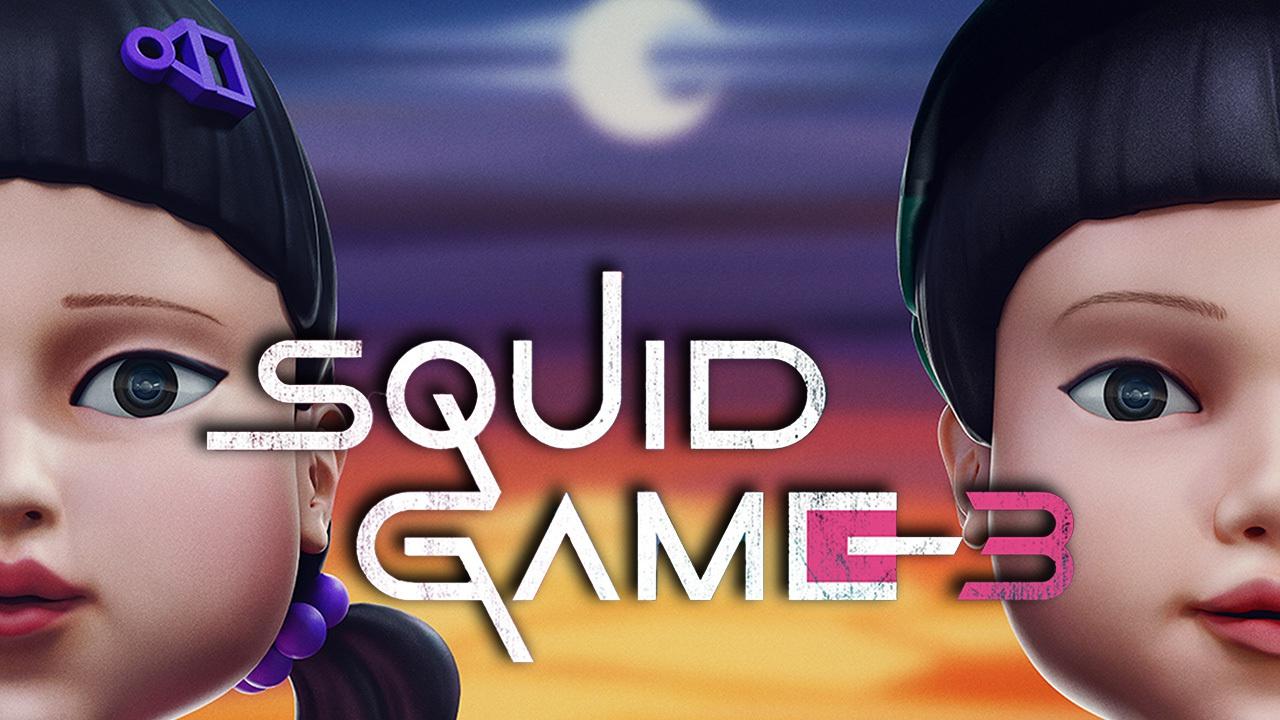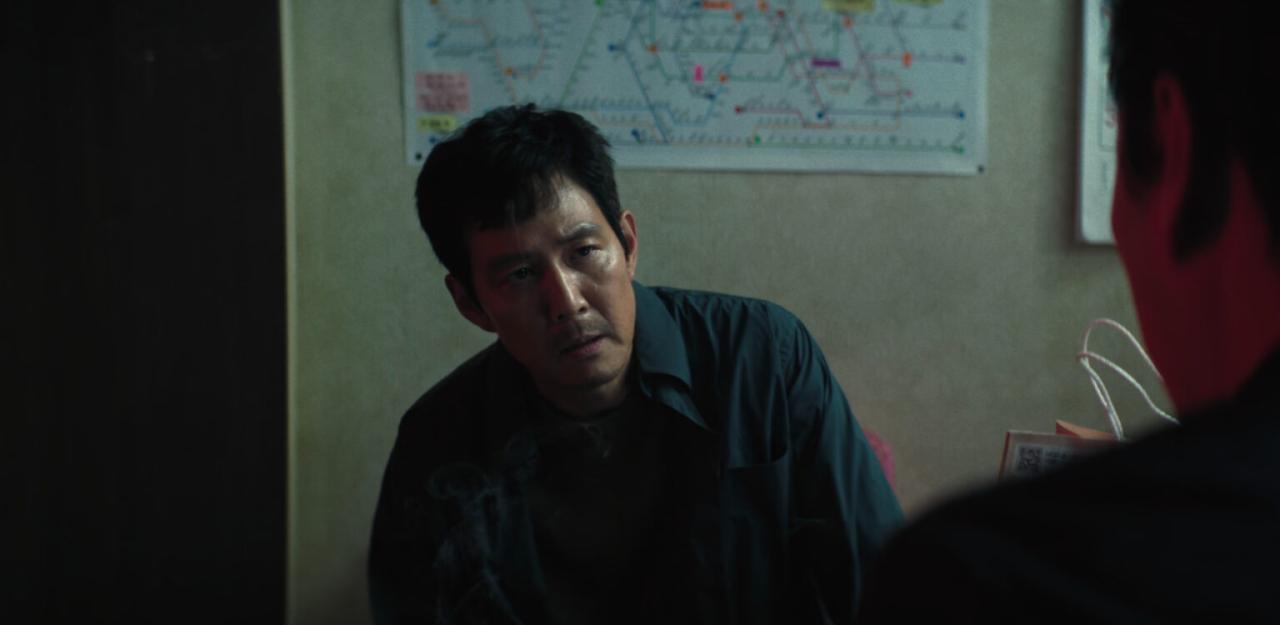Squid Game Histoire Vraie? The hit Netflix show sparked global conversations, but how much of its brutal reality reflects the harsh realities of South Korean society? This exploration delves into the socio-economic conditions, the influence of reality TV, and the psychological impact of extreme competition to uncover the unsettling truths behind the game’s shocking premise. We’ll examine the parallels between the show’s fictional scenarios and the very real struggles faced by many in South Korea.
From crushing debt and the allure of high-stakes gambling to the ethical dilemmas of survival-based entertainment, we’ll dissect the show’s commentary on social inequality and the pressures of modern life. We’ll also analyze the show’s visual elements and symbolism, exploring how they contribute to its powerful message. Prepare to question what you thought you knew about the inspiration behind this cultural phenomenon.
South Korean Socioeconomic Realities and Squid Game

Squid Game’s brutal depiction of survival games resonated globally, but its unsettling realism stems from the harsh socio-economic realities of South Korea. The show serves as a stark reflection of the country’s high levels of debt, economic inequality, and the desperation some individuals face. This analysis explores the parallels between the fictional games and the real-life struggles faced by South Koreans, examining the show’s depiction of violence, psychological pressure, and its impactful visual symbolism.
South Korean Debt and Economic Inequality

South Korea’s economic miracle has masked significant inequalities. A highly competitive job market, coupled with the pressure to maintain appearances and societal expectations, pushes many into crippling debt. The pursuit of higher education, often financed through loans, can leave graduates burdened with substantial debt, limiting their future opportunities. Furthermore, the cost of housing in major cities like Seoul is exorbitant, making homeownership a distant dream for many.
This creates a breeding ground for desperation, mirroring the desperation of the Squid Game contestants.
Examples of real-life debt traps include high-interest loans from unregulated lenders, which can quickly spiral out of control. Individuals facing job loss or unexpected medical expenses often find themselves trapped in a cycle of debt, with little to no social safety net. The pressure to provide for families further exacerbates the situation. The prevalence of gambling, often fueled by desperation to recoup losses or escape financial hardship, contributes to the problem, creating a vicious cycle of debt and despair.
This is directly reflected in the Squid Game’s premise, where participants are driven by immense financial burdens.
Gambling and high-stakes games, while not as extreme as the Squid Game, are prevalent in South Korean society. From lottery tickets to online gambling, many individuals engage in these activities, sometimes as a coping mechanism or a desperate attempt to improve their financial situation. The allure of quick riches contrasts sharply with the grim reality of debt and financial insecurity.
| Game Scenario | Real-Life Parallel | Impact on Participants | Social Commentary |
|---|---|---|---|
| Red Light, Green Light | High-stakes job competition in South Korea | Elimination equates to job loss and financial ruin | Illustrates the ruthless nature of the job market and the pressure to succeed |
| Honeycomb | Navigating complex financial systems and regulations | Failure leads to debt and financial hardship | Highlights the challenges faced by those trying to escape poverty |
| Tug-of-war | Competition in a hierarchical society | Teamwork vs. betrayal | Shows the importance of alliances but also the prevalence of backstabbing to survive |
| Marbles | Exploitative loan practices and predatory lending | Loss of trust and friendship | Critiques the vulnerability of those in debt and the moral compromises they make |
Survival Games and Reality TV Shows
The popularity of survival-themed reality TV shows, like “Survivor” and “Fear Factor,” undoubtedly influenced Squid Game’s narrative structure and dramatic tension. However, Squid Game takes the concept to a far more extreme and violent level, raising significant ethical concerns that are largely absent in mainstream reality television.
So, you’re curious about “Squid Game histoire vraie”? While the show’s fictional, its themes of desperation resonate with real-world struggles. Think about the sheer scale of spectacle – it reminds me of the incredible visuals of the shanghai new year drone show , a breathtaking display of technology and artistry. Both, in their own ways, showcase impressive displays, though one is deadly competition and the other is a vibrant celebration.
The contrast highlights the show’s unsettling commentary on societal pressures.
- Similarities and Differences between Squid Game and Three Specific Reality Shows:
- Squid Game vs. Survivor: Both involve competition and elimination, but Squid Game’s stakes are deadly, while Survivor focuses on strategic gameplay and social dynamics.
- Squid Game vs. Fear Factor: Both feature challenges that push physical and mental limits, but Squid Game’s challenges are designed to be lethal, whereas Fear Factor emphasizes overcoming personal fears.
- Squid Game vs. Running Man (Korean Variety Show): Both have elements of physical and mental challenges, but Running Man is lighthearted and comedic, while Squid Game is dark and violent.
Examples of real-life games or competitions that feature elements of risk and high stakes include extreme sports competitions, high-stakes poker tournaments, and even some corporate challenges. These real-world examples, however, lack the deadly consequences and the profound social commentary present in Squid Game.
Depiction of Violence and Social Commentary

Squid Game does not shy away from depicting graphic violence and its devastating consequences. The violence is not gratuitous; it serves as a visceral representation of the desperation and brutality of the game’s premise and the systemic issues it reflects. The games themselves are meticulously designed to expose the participants’ vulnerabilities and exacerbate existing social inequalities.
The show’s social commentary is multifaceted, focusing on class inequality, societal pressures, and the dehumanizing effects of extreme competition. Scenes like the elderly contestant’s struggle in the “Honeycomb” challenge highlight the vulnerability of marginalized groups, while the violent escalation of the games exposes the moral decay caused by extreme desperation. The show forces viewers to confront the harsh realities of poverty and social injustice.
So you’re curious about “Squid Game histoire vraie”? While the show’s fictional, the desperation it portrays is sadly real for many. Think about the scale of that desperation – it’s almost as visually stunning as the coordinated spectacle of a chinese new year drone show , though vastly different in context. The contrast highlights how entertainment can both reflect and escape harsh realities, reminding us of the underlying issues “Squid Game” explores.
The impact of Squid Game on viewers’ perceptions of violence and social injustice is significant. The show sparked global conversations about inequality and the societal factors that contribute to desperation. While some criticize its graphic violence, others praise its ability to highlight critical social issues in a compelling way.
Psychological Impact of Extreme Competition and Pressure, Squid game histoire vraie
The psychological toll on the game participants is immense. The show explores a range of psychological concepts, including conformity, obedience, and desperation. The contestants’ motivations for participating are complex, ranging from desperate financial needs to a desire for revenge or redemption. The pressure to survive, combined with the manipulation and psychological manipulation from the game’s organizers, pushes them to their breaking points.
Real-life situations that mirror the intense pressure and competition faced by the Squid Game contestants include high-pressure work environments, military training, and extreme sports. These scenarios highlight the resilience of the human spirit but also the potential for psychological damage under extreme stress. The show’s character analysis reveals the diverse ways individuals cope with such pressures, some succumbing to desperation while others find unexpected strength.
So you’re into the “Squid Game histoire vraie” debate? It’s fascinating how a fictional show reflects real-world anxieties. Think about the spectacle of it all – the sheer scale is mind-boggling, almost like a massive, coordinated drone show, similar to the amazing chinese new year drone show I saw recently. That level of precision and organization is equally impressive, reminding us of the intricate planning behind the deadly games in Squid Game.
It makes you wonder about the human cost behind such elaborate displays.
Visual Elements and Symbolism in Squid Game
Squid Game’s visual language is carefully crafted to enhance the narrative and reinforce its themes. The use of stark contrasts in color, such as the vibrant pink of the guards’ uniforms against the muted tones of the contestants’ clothing, underscores the power imbalance and the dehumanizing nature of the games. The setting, a desolate and isolated location, amplifies the sense of isolation and despair.
Key symbols include the giant doll in “Red Light, Green Light,” representing the childhood innocence lost in the face of brutal adult realities. The shapes and colors of the game sets themselves carry symbolic weight, reflecting the complex and often deceptive nature of the challenges. The use of costumes further reinforces the power dynamics between the guards and the contestants.
A key scene: The final game, involving a game of marbles between Gi-hun and Sang-woo, takes place in a dimly lit, claustrophobic space. The close-up shots on their faces emphasize the emotional turmoil and desperation they are experiencing. The marbles themselves symbolize their fading hope and the betrayal of trust. The scene’s muted colors and intimate setting create a powerful sense of dread and inevitability.
Wrap-Up
Squid Game’s shocking depiction of extreme competition and its devastating consequences serves as a powerful reflection of real-world struggles. While the show’s games are fictional, the underlying themes of debt, inequality, and the human cost of desperation are tragically real for many. By exploring the parallels between the show’s narrative and the realities of South Korean society, and the broader impact of reality TV, we gain a deeper understanding of the show’s enduring impact and its unsettling message about the human condition under pressure.
Quick FAQs: Squid Game Histoire Vraie
Is Squid Game based on a true story?
No, Squid Game is not based on a single true story. However, it draws inspiration from real-world issues in South Korea, such as economic inequality and the prevalence of gambling.
What are some of the real-life equivalents to the games in Squid Game?
While the games themselves are fictional, the desperation and high-stakes risks mirror real-life situations like predatory lending, unfair labor practices, and the pressures of extreme competition for jobs and resources.
How did the show impact viewers’ perceptions?
The show sparked intense discussions about social inequality, the ethics of reality TV, and the psychological impact of extreme pressure. It prompted many to consider the darker sides of competition and the vulnerability of individuals facing dire circumstances.
